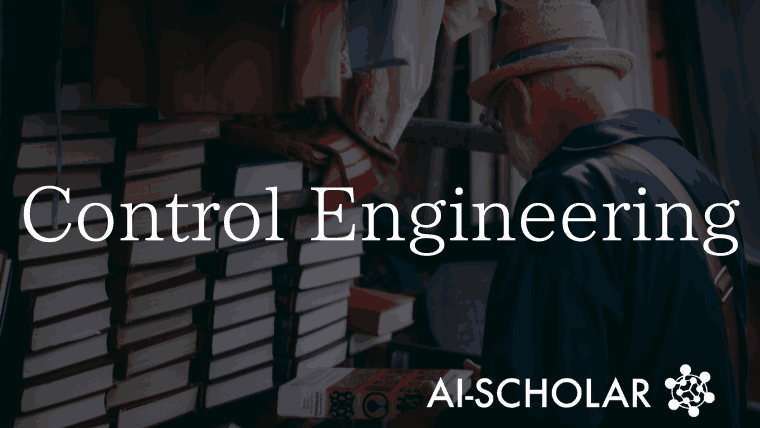
GPT-4, Claude 3 Opus, And Gemini 1.0 Ultra Challenge New Frontiers In Control Engineering
3 main points
✔️ Developing the ControlBench Dataset We built a collection of college-level problems covering the fundamentals and applications of control engineering and used them to evaluate LLM performance.
✔️ Evaluation of LLMs' ability to solve control problems We evaluated three LLMs, GPT-4, Claude 3 Opus, and Gemini 1.0 Ultra, and found that Claude 3 Opus showed the best performance. However, issues requiring visual information and calculation errors were also identified.
✔️ Proposal for ControlBench-C We developed ControlBench-C, a simplified version of ControlBench, so that non-experts in control engineering can easily evaluate LLM performance.
Capabilities of Large Language Models in Control Engineering: A Benchmark Study on GPT-4, Claude 3 Opus, and Gemini 1.0 Ultra
written by Darioush Kevian, Usman Syed, Xingang Guo, Aaron Havens, Geir Dullerud, Peter Seiler, Lianhui Qin, Bin Hu
(Submitted on 4 Apr 2024)
Comments: Published on arxiv.
Subjects: Optimization and Control (math.OC); Artificial Intelligence (cs.AI); Machine Learning (cs.LG)
code:

The images used in this article are from the paper, the introductory slides, or were created based on them.
Introduction
In recent years, large-scale language models (LLMs) such as GPT-4, Claude 3 Opus, and Gemini 1.0 Ultra have rapidly evolved to demonstrate their ability to solve complex problems. These developments in LLMs have potential applications in a variety of fields.
One of the most notable applications is in control engineering. Control engineering is a field that involves both mathematical theory and design, and it has the potential to take advantage of the advanced reasoning capabilities of LLMs. However, the control problem-solving capabilities of LLMs have not yet been fully elucidated.
The objective of this study is therefore to determine the extent to which state-of-the-art LLMs can solve university-level control problems. The authors developed a benchmark dataset called ControlBench, which covers both basic and applied control engineering, and comprehensively evaluated the performance of three models: GPT-4, Claude 3 Opus, and Gemini 1.0 Ultra.
This effort is expected to highlight the potential and limitations of LLM in the field of control engineering and provide important insights for the future integration of AI and control engineering.
Research
ControlBench dataset development
The authors have constructed a ControlBench dataset covering college-level control problems. The dataset covers a wide range of areas in control engineering, including stability, transient response, block diagrams, control system design, Bode diagrams, and Nyquist diagrams. It also includes problems that require visual information and is designed to provide a comprehensive evaluation of LLM's analysis capabilities.
ControlBench data is collected from textbooks and online materials and organized in LaTeX format. Detailed answers and explanations are also provided for each question, which can be used to evaluate LLM performance.
Assessment of LLM's ability to solve control problems
 The graph above shows the types and percentages of errors for GPT-4 and Claude 3 Opus; seven error patterns are defined and their percentages are compared.
The graph above shows the types and percentages of errors for GPT-4 and Claude 3 Opus; seven error patterns are defined and their percentages are compared.
First, it can be seen that the main challenge of the GPT-4 lies in its "limited reasoning ability". In other words, interpreting control problems logically and deriving correct answers is identified as a weakness of the GPT-4.
On the other hand, the biggest challenge for Claude 3 Opus is "calculation errors. It seems that errors tend to occur in mathematical processing areas such as transformations of formulas and accuracy of numerical calculations.
However, a comparison of the two shows that Claude 3 Opus has fewer errors due to "limited reasoning ability". In other words, Claude 3 Opus is superior in terms of understanding of control theory and reasoning ability.
Thus, by using Figure 1 to quantitatively compare and analyze the strengths and challenges of each LLM, the characteristics of LLMs' control problem-solving abilities can be clearly demonstrated. The results of this analysis are important findings for the application of LLMs to control engineering.
Proposal for ControlBench-C
While detailed evaluations with ControlBench are meaningful, they can be intimidating to non-experts in the field of control engineering. Therefore, the authors propose a simpler version, ControlBench-C.
ControlBench-C replaces the 100 ControlBench questions with single answer choice questions. This format allows rapid, automated evaluation of LLM responses without the need for control engineering expertise.
ControlBench-C asks the user to enter answers to LLM choices and their reasoning, and calculates the percentage of correct answers (ACC) and the percentage of correct answers after self-correction (ACC-s). This method allows noncontrol experts to understand the basic control problem-solving abilities of LLMs.
ControlBench-C is positioned as a complement to ControlBench, as ControlBench provides detailed insight, while ControlBench-C allows for easy, automated evaluation. It is expected that both will be used interchangeably in future research.
Conclusion
This paper is a pioneering study of the applicability of large-scale language models (LLMs) to control engineering. The authors developed a benchmark dataset called ControlBench and evaluated it against three LLMs: GPT-4, Claude 3 Opus, and Gemini 1.0 Ultra.
The results showed that Claude 3 Opus demonstrated the best performance in solving control problems. On the other hand, it was confirmed that LLM still has some issues to be addressed, such as handling problems that require visual information and problems with calculation errors.
Future research issues include the following: 1.
- Expansion of the ControlBench dataset: more complex control problems
- Development of control-oriented prompting methods: design to maximize LLM capabilities
- Improved LLM reasoning capability and computational accuracy: Improvements for accurate control problem solving
- Building an efficient automatic evaluation method: facilitating performance evaluation of LLMs in the field of control engineering
Through these efforts, it is expected that the integration of AI and control engineering will make further progress. This research represents an important step forward in this area.
Categories related to this article


